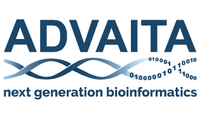

Advaita Bioinformatics articles
My previous post, Pathway Analysis vs Gene Set Analysis, ended with an interesting question: has anybody really compared side-by-side gene set analysis methods and pathway analysis methods on the same data sets? Well, the answer is: not yet! The main reason for this is that it is extremely difficult to objectively validate the results of a pathway analysis method. It is even more difficult to compare the r
AdvaitaBio’s IPathwayGuide plays significant role in the research of a Stanford investigator.
Stanford University is one of the world’s leading research and teaching institutions. With a 1.69 billion dollar annual sponsored research budget, Stanford has been delivering breakthrough discoveries in numerous domains. For over 6 years, Dr. Linda Yip has been conducting research at Stanford, focusing on the identification and characterization of genes involved
The research goals of Carole Ober’s laboratory at the University of Chicago are to identify genetic variants that influence gene expression and epigenetic patterns in tissues relevant to complex phenotypes, especially related to asthma and fertility. The lab uses both freshly isolated cells, as well as tissue and cell culture models of gene-environment interactions to explore context-specific transcriptomic and epigenomic responses. The group of 13 people includes graduate students, pos
The Perinatology Research Branch (PRB) is the only Clinical Branch in the Division of Intramural Research (DIR) of the National Institutes of Health (NIH) to focus its research on human pregnancy and unborn children. It is currently housed at the Detroit Medical Center in Detroit, Michigan through a service contract. The Branch has thrived in this environment, earning a national and international reputation for its pioneering work and scientific achievements. Using a multidisciplinary approac
Medical University of South Carolina (MUSC) is South Carolina’s only comprehensive academic health science center. Its purpose is to preserve and optimize human life in South Carolina through the vision to lead health innovation for the lives it touches.
Ludivine Renaud has a Bachelor’s degree in marine biology from the College of Charleston, a Master’s degree in environmental science from the College of Charleston and a Ph.D. in molecular and cell biology from MUSC.
The Barbara Ann Karmanos Cancer Center, located in midtown Detroit, is the only National Cancer Institute (NCI)-designated comprehensive cancer center in metro Detroit and one of just 51 centers of its kind in the United States. The comprehensive cancer center designation means patients can access treatments exclusive to Karmanos, as well as clinical trials, cancer prevention programs, and multidisciplinary teams of cancer specialists — a comprehensive approach you cannot find in
